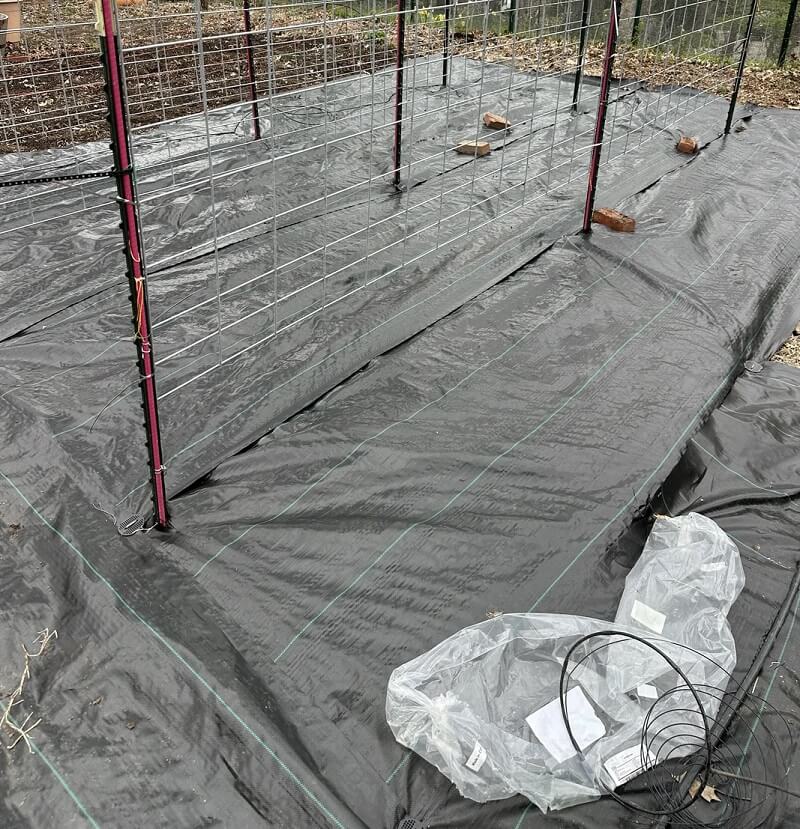A Redditor believed they had found a simple way to save themselves from the painstaking task of weeding their garden, but they were quickly warned that their solution wasn't all that it seemed.
"Finally succumbed to the weed fabric… Getting too old for weeding. What do I need to know, will I regret it?" the original poster wrote in the r/Gardening community, sharing a photo of a black plastic-based fabric covering the area where they said they'd plant tomatoes and peppers.

Multiple commenters informed the OP that, yes, they would very much regret this common landscaping trend — which may not even eliminate the need for weeding to begin with.
"My weeds just grew on top of the fabrics, and the roots grew into the fabric which was sooo much worse," one person cautioned.
"I have repeatedly tried different variations of fabric/plastic barriers. I have never had a good outcome," another shared, writing that they understood the OP's desire to find a less physically demanding weed-control solution. "The weeds come through faster than you could imagine and are a bigger pain to pull when they do."
The commenter added that the soil quality would likely suffer, perhaps impacting the abundance of the OP's crops going forward.
Landscaping fabrics also typically shed microplastics into the soil. While studies suggest people who garden are generally healthier than those who don't, it would be far from ideal to potentially introduce those particles into home produce. Microplastics have been linked to reproductive issues and lung disorders, among other health problems.
Some home gardeners have deterred weeds by rewilding their yards. According to the California Native Plant Society, "once established, native plants do a fairly good job of discouraging weeds."
Other benefits of incorporating native species into gardens or transitioning to a more natural lawn, like by seeding with clover, include reduced water bills. Native plants are also good for pollinators, which are essential for a healthy ecosystem and support our food supply.
One commenter revealed to the OP that they had some success deterring weeds by using marigolds as a cover crop. The flowers also serve as a chemical-free way to repel certain pests that like to munch on tomatoes and peppers. Others suggested cardboard as one way to control weeds without harsh chemicals.
"Weeds will happen," one person wrote. "[Use] 4 inches of mulch or cardboard which can decompose are equally as effective as weed matting and better for the soil."
"That plastic is there forever. I use cardboard," another affirmed.
Join our free newsletter for easy tips to save more and waste less, and don't miss this cool list of easy ways to help yourself while helping the planet.









